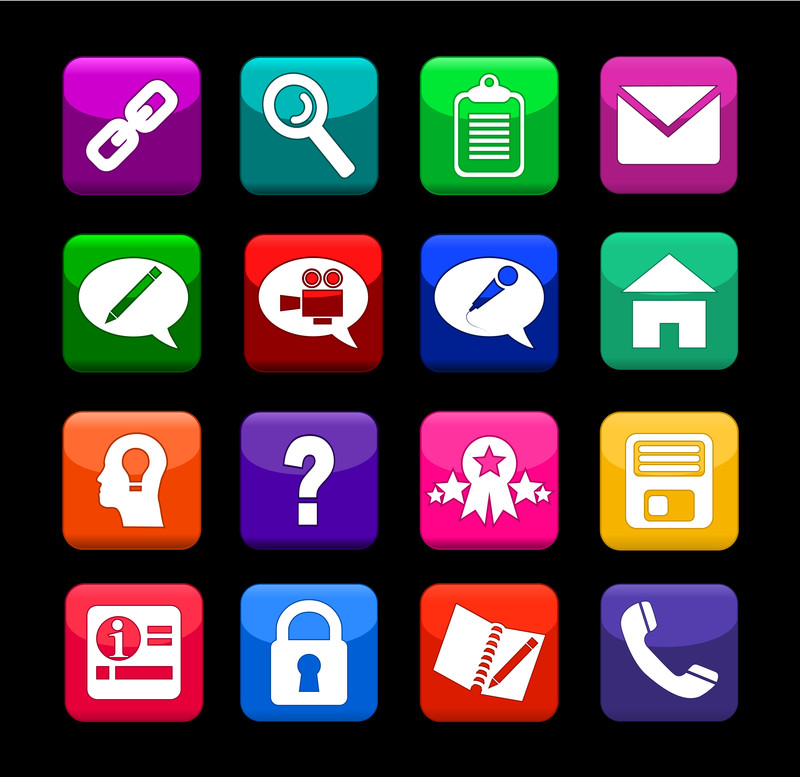 Peek into a work day in the life of private practitioner and licensed clinical psychologist Marla W. Deibler, Psy.D. Founder and Director of The Center for Emotional Health of Greater Philadelphia, LLC. Her outpatient behavioral health group practice specializes in the treatment of anxiety and obsessive-compulsive spectrum disorders.
Peek into a work day in the life of private practitioner and licensed clinical psychologist Marla W. Deibler, Psy.D. Founder and Director of The Center for Emotional Health of Greater Philadelphia, LLC. Her outpatient behavioral health group practice specializes in the treatment of anxiety and obsessive-compulsive spectrum disorders.
She's also a wife and a mother of three children and has found a nice work/life balance working 2.5 days per week at her clinic, and spending time the rest of the time home with her children. Thanks to email, phone, and text, Dr. Deibler operates her business remotely "in spurt" during the days she's at her home. And apparently, she doesn't sleep much!
Here's a day in the life of one of Dr. Deibler's "work" days:
A Day In The Life
November 16, 2011
6:15am – 8:15am
Woke up and got my children ready for school and myself ready for work. Ate breakfast. Checked my email, responded to several emails, including an email to our web designer who is working on our new website (very exciting), and forwarded a few visual voicemail emails to my office manager for return phone calls later in the day. Quickly scanned personal and business Facebook newsfeeds and scanned my Twitter feed.
8:15am-9am
Took my second grader to board his school bus and took my 1 year-old and 4 year-old to day care.
9:30am-10am
Arrived at my office, large cup of caffeinated tea in hand that I brewed before leaving home. Turned on all office lights and computers, collected billing slips and receivables, returned two phone calls, one from a potential patient who had a question and one from a TV network with whom I’ve worked. Review my clinical schedule for the day: it looks like I’ll be working with adults and children today with difficulties including, OCD, compulsive hoarding, tourette’s disorder, depression, panic disorder, and trichotillomania.
10am-11am
Saw a therapy patient.
11am – 12:45pm
Supervision meeting with one of my post-doctoral fellows. Discussed cases and other clinical and practice management issues. Discussed planning co-presenter workshop proposals for the Trichotillomania Learning Center (www.trich.org) annual conference in May 2012. The deadline is quickly approaching, so we have to finalize our proposals over the next 10 days.
12:45pm – 1pm
Pulled testing measures to create charts for this week’s pre-bariatric surgery psychological evaluations. Received incoming mail. Checked email and forwarded visual voicemail emails to my office manager for return calls.
1pm – 2pm
Weekly staff luncheon. Enjoyed great salads from a nearby restaurant that delivers while we discussed cases with one another and other practice issues.
2pm – 3pm
Supervision meeting with another post-doctoral fellow who has just returned to work on a limited basis from maternity leave. This was particularly nice, as she brought her 8 week-old baby while we discussed her cases and other work-life balance issues. I manage my facility in an employee-focused, family-focused manner; each clinician is valued professionally and given the flexibility to create their own schedule so that they can create happy work and personal lives (I whole-heartedly believe this happiness is reflected in their work with patients, so it’s a win-win approach to practice management). In this clinician’s case, she presently sees patients on Saturdays, when her husband is home caring for their child. On Wednesdays, she brings him to the office for her weekly meeting with me.
3pm – 6:30pm
Saw therapy patients.
6:30pm – 6:45pm
Left the office for the day and drove home to my family. My husband is also a psychologist. He works at a special services school, so he gets off from work at 3:30pm and tends to the children until I come home (Mondays and Wednesdays I work late).
7pm-8:30pm
Spent time with my husband and children. Ate dinner. Ensured that homework was done. Put the baby to bed. Supervised bath time for the older children. Read bedtime stories and tucked the big kids in.
8:30pm-9:30pm
Sat with my husband in our bedroom, while each of us spent some winding down time on our Apple devices –We love this technology. (My husband read news and such on his iPhone, talking about some of the day’s events with me), while I logged into my electronic medical records system (www.carepaths.com), signed off on billing, reviewed and signed off on clinical documentation written by post-doctoral fellows, and submitted batched electronic insurance claims for the day’s in-network patients. Contemplated a run on the treadmill, but today is usually a “rest day” for me and I have too much to do this evening, so it will have to wait until tomorrow.
9:30pm-10pm
Brewed a cup of tea and planned our Thanksgiving dinner menu (as well as ordering our turkey and when I’m going to grocery shop—I’ve got to begin with making butternut squash soup this weekend). I cook Thanksgiving dinner for my family and my brother’s family every year.
10pm-2am
Procrastinated work a bit here and there, intermittently throughout, by checking and returning emails, both personal and professional (needs to be done anyway), checking Facebook, and exploring professional and practice growth opportunities.
Reviewed a post-doctoral fellow’s lengthy forensic report. Completed business accounting tasks for the week. Created to do list with particular attention to the insurance claims/pre-authorizations about which I need to inquire. Filed a freelance writing/consulting application.
2:30am
Went to sleep (Yes, it is very late. Wednesday is by far my latest night of the week; it’s a worthwhile tradeoff for more time with my family on other days). Tomorrow is a new day. I’m home with my two youngest children to enjoy time with this and take care of household tasks, while managing the practice via email/phone for the day.
For more information on Dr. Deibler and her practice visit www.thecenterforemotionalhealth.com, or connect on Twitter, YouTube, or Facebook.




 Peek into a work day in the life of private practitioner and licensed clinical psychologist Marla W. Deibler, Psy.D. Founder and Director of
Peek into a work day in the life of private practitioner and licensed clinical psychologist Marla W. Deibler, Psy.D. Founder and Director of
As healers, we genuinely like to do our work. Guiding clients through the therapy process and seeing them make progress is why we do what we do. But if you're in private practice, you know there's a lot going on in the back end and that it's crucial to run an efficient and organized business.